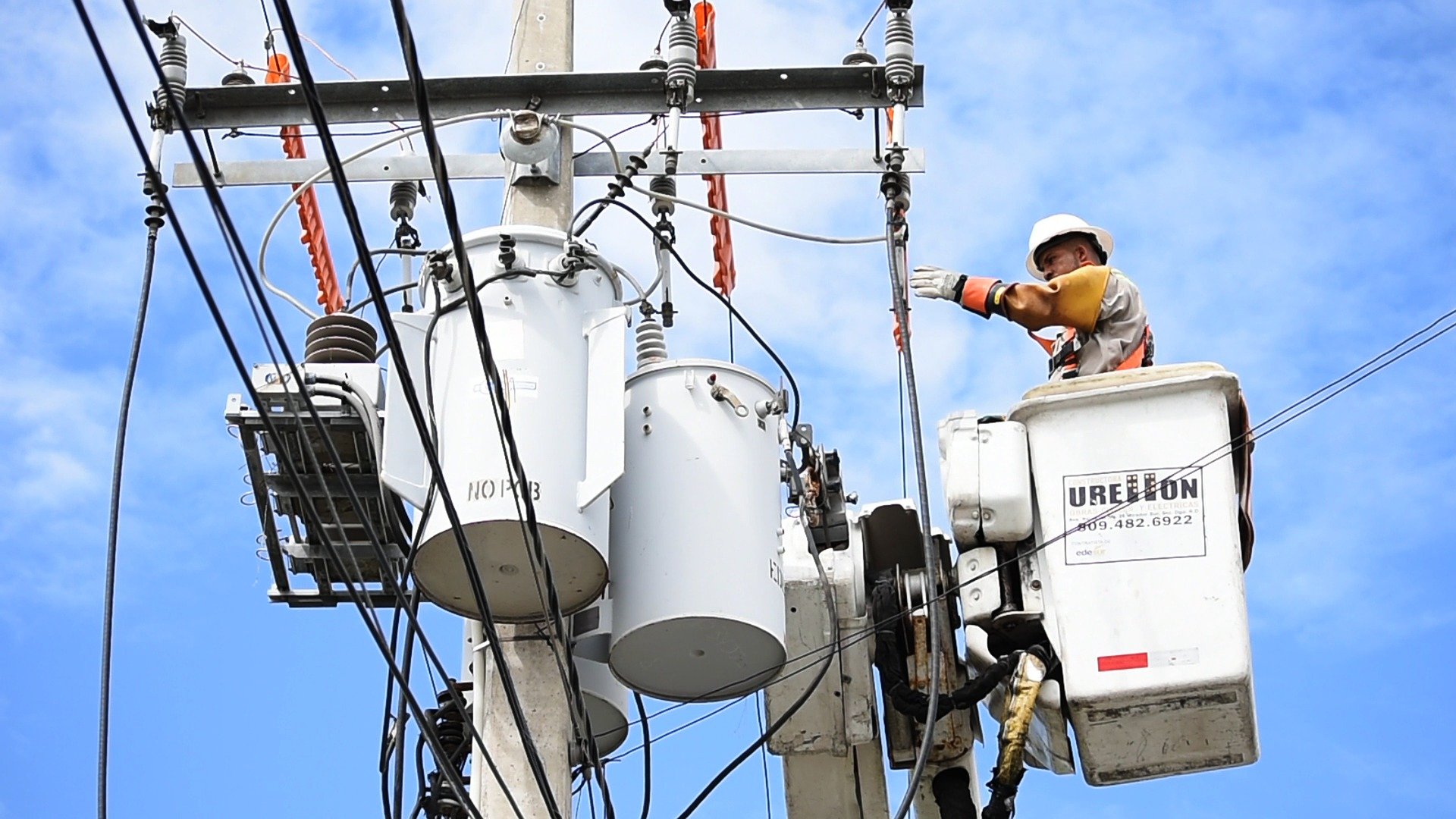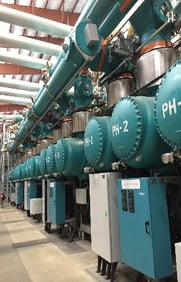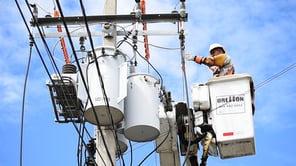
May 6, 2020
Top 6 Predictions: The Future of Utility Asset Analytics
Earlier this year we released our Top 5 Predictions for 2020 The Future of Utility Asset Analytics. Since then, many things have changed and we are living in a new normal that will drive touchless behavior in many aspects of our lives, some expected and others not.
To address this specifically to the utility community’s needs, we’d like to add a Plus 1 to our list of predictions: the rise of Conversational Voice (see prediction #6). This is especially important for daily users of mobile devices and workers that may now find themselves deployed without the normal complement of side-by-side colleagues.
In 2020 and beyond, will advanced asset analytics continue to offer deeper insight into failures that threaten our valuable assets? At Utegration, we see advances in technology, manufacturing and expectations that give us a chance to implement systems and methods that will deliver significant step changes in early warning and asset condition monitoring.
To start the journey and open our perspective, let’s explore our top predictions that will most likely impact our ability to look into the future of asset management.
#1 Sensors – PREDICTION: LOWER COST, SMALLER FORMAT, MORE CAPABLE

Using the analogy of music reproduction, think of the sensor as the microphone in the system. If we get this part right, we have success; if we fail, expect to be plagued with a low fidelity data source. Clearly the sensor is not the place for cutting corners as it is the first and most important component that touches the data. Dependent on the type of sensor, one can be looking at pennies per device, or in the case of sophisticated multifunction or hardened sensors, thousands of dollars each. Cost is largely driven by the capability to resolve, store, communicate and perform multiple data capture functions. With the latest generation of sensors, processing capabilities allow decision making at the edge, local storage for zero backhaul access and multimode communication capabilities.
#2 Delivered Analytics – PREDICTION: BUNDLED, SELF POWERED AND OUT OF THE BOX
 Recent advances in material sciences have opened doors into the use of embedded sensors in smart materials used for asset manufacture. It’s also become commonplace to have a complete instrumentation package built into the delivered asset. Couple this convenience of engineering and procurement with energy harvesting systems that acquire the data in place without external power sources and the flow of critical asset information becomes easier to deploy. Wildfire detection systems, wind-induced galloping sensors, and material stress sensors are just a few examples of how this is being placed into the grid elements and into our assets. No doubt we will see more in these areas as the combination of material science and the quest for data is driving innovation in the ways to use material characteristics as a proxy for add-on sensors.
Recent advances in material sciences have opened doors into the use of embedded sensors in smart materials used for asset manufacture. It’s also become commonplace to have a complete instrumentation package built into the delivered asset. Couple this convenience of engineering and procurement with energy harvesting systems that acquire the data in place without external power sources and the flow of critical asset information becomes easier to deploy. Wildfire detection systems, wind-induced galloping sensors, and material stress sensors are just a few examples of how this is being placed into the grid elements and into our assets. No doubt we will see more in these areas as the combination of material science and the quest for data is driving innovation in the ways to use material characteristics as a proxy for add-on sensors.
#3 Crossover Applications – PREDICTION: APPLY THE LEARNINGS OF OTHERS

Sporting industry and professional sport teams have quickly capitalized on the analytics offered with big data. For just a moment, think about the fantasy football leagues, or the local bookmaker. It’s all about the stats. Today’s cutting-edge sports teams are using real-time data from smart sportswear that monitor impact of the last hit or the player’s pulmonary condition. During the pre-season workouts, teams are using accelerometers to understand just how quick an athlete can be. The utilization of biometric data translates into better decisions and can be used to predict everything from brain injury and joint damage to conditioning levels. Watch any nationally televised football event and consider the extensive use of analytics in the visualization of the plays. Imagine if your most critical assets provided this new level of awareness and insight!
#4 Techniques – PREDICTION: AI EXPLOSION AND CONTINUED BLEND OF OP AND CLOUD

Initial solution offerings were on premise and required a team of PhD data scientists with dedicated computers to implement needed algorithms and field engineers to build the hardwired back haul data pathways. Many vendors used proprietary codes in their solutions that contained numerous black box modules whose methods were kept obscured from the owner operator. Tomorrow holds for us the increased use of cloud computing solutions while still holding a significant on premises deployment foothold. Utegration predicts an explosive growth in the use of AI largely driven by computing power and the simultaneous ongoing reduction in cost as the data from sensors and inexpensive storage provides for the deep mining.
#5 Adoption – PREDICTION: GROWTH WILL BE STEADILY DRIVEN BY- 
The never-ending drive for lower cost operations throughout the entire lifecycle of the asset combined with relentless regulatory and competitive pressures are creating the perfect environment to deploy advanced asset analytic technologies. The proliferation of delivered sensor packages, easy-to-deploy wireless backhaul, cloud applications and inexpensive storage have made the economics of a positive business case to invest better than ever before. Staffing with senior resources is becoming easier as the boomer asset engineers are becoming more available in consulting roles and bring their deep industry experiences. A winning strategy is to pair career hands-on experience with young technologists to realize valuable use cases and insight.
#6 Touchless - PREDICTION: THE RISE OF CONVERSATIONAL VOICE
 “Hey Alan – Show me the highest occurrence of recloser failures.” No, we haven’t confused our mobile asset analytics application with starting the evening music playlist! That’s how you activate the Intelligent Conversational Voice application from Alan AI to investigate asset analytics using your voice—in a completely touchless way. Conversational Voice control has taken the familiar consumer level experience to a new level by integrating AI learning models and fluency in industry specific phrases. Expect to see Alan conversational voice on your mobile device or browser-based application in the near future.
“Hey Alan – Show me the highest occurrence of recloser failures.” No, we haven’t confused our mobile asset analytics application with starting the evening music playlist! That’s how you activate the Intelligent Conversational Voice application from Alan AI to investigate asset analytics using your voice—in a completely touchless way. Conversational Voice control has taken the familiar consumer level experience to a new level by integrating AI learning models and fluency in industry specific phrases. Expect to see Alan conversational voice on your mobile device or browser-based application in the near future.
Taking these 6 predictions into consideration, the ability to predict asset degradation using advanced analytical techniques as the must-have in the asset managers of 2020's toolbox. As a bonus, to gain business support, build on the executive awareness of consumer applications of AI. This cross pollination will drive AI / ML and other advanced technologies into our asset intensive environments. Your assets will thank you when you take action and invest.
Want to discuss the best asset analytics strategies for your utility? Email BetterSolutions4U@utegration.com.